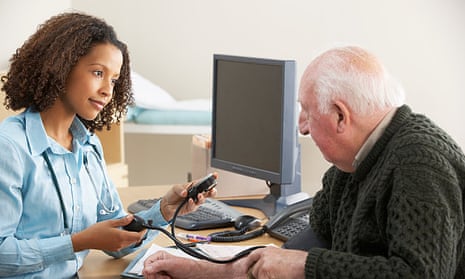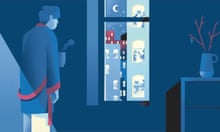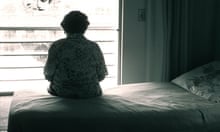Being lonely can be as bad for someone’s health as having a long-term illness such as diabetes or high blood pressure, the leader of Britain’s GPs will warn on Thursday.
Patients who visit their family doctor because they are suffering from loneliness and want some human contact are adding to the pressures the NHS is under, Dr Helen Stokes-Lampard will tell the Royal College of General Practitioners (RCGP).
But she will also urge GPs to make the time to see such patients, so that they have someone to talk to, despite being overworked because of the growing demands on their schedules.
The estimated 1.1 million Britons to be lonely are 50% more likely to die prematurely than people with a good social network, making loneliness as big a mortality risk as diabetes, the college says.
“Social isolation and loneliness are akin to a chronic long-term condition in terms of the impact they have on our patients’ health and wellbeing,” the college’s chair will tell its annual conference.
“GPs see patients, many of whom are widowed, who have multiple health problems like diabetes, hypertension and depression, but often their main problem isn’t medical, [it’s that] they’re lonely.”
Acting as a sympathetic listening ear is often more useful than giving someone a prescription for drugs or offering lifestyle advice, Stokes-Lampard will add. “The guidelines say we should be talking to them about their weight, exercise and prescribing more medication. But really what these patients need is someone to listen to them and to find purpose in life.
“Loneliness and social isolation are not the exclusive preserve of the elderly. They are not something that can be treated with pharmaceuticals or that can be referred for hospital treatment”.
Three out of four GPs say they see between one and five lonely people a day, according to research among over 1,000 family doctors undertaken in 2013 by the Campaign to End Loneliness. One in 10 said they saw between six and ten patients daily who had come in mainly because they were lonely. But only 13% felt well equipped to help them.
Lonely people are known to consult their GP more than others.
“The health impacts of loneliness can be devastating; it is worse for you than obesity, and as bad as smoking 15 cigarettes a day. Chronic loneliness is cutting lives short, and the problem is growing,” said Laura Alcock-Ferguson, the campaign’s executive director.
Recent research it undertook with the London School of Economics found that £3 in health costs was saved for every pound spent tackling loneliness. Local NHS bodies should invest in services that will stop lonely people needing to see their GP in the first place, she added.
Age UK said that about a million older people suffered from loneliness, “an often devastating state of profound unhappiness”, and that feelings of isolation could be a sign of underlying ill-health.
“Loneliness can sometime be the face of more serious underlying issues and should not be disregarded as a minor problem. GPs should be alert to any underlying mental health problems such as depression,” said Caroline Abraham, Age UK’s charity director. GPs should do more to direct lonely people to services that can support them, she added.
NHS England agreed with the RCGP chief that GPs spending time with lonely people was a good use of their time.
“Older people can sometimes decide to soldier on through illness, which can then lead to more serious health problems,” a spokesman said.
“Just having someone to talk to makes it more likely that health problems are mentioned and help sought early, which is particularly important as we move into winter, as elderly patients make up the largest number of hospital admissions.”
But Stokes-Lampard added that GPs needed to have less pressurised schedules so that they had enough “time to care” for socially isolated patients.
Other research by the Campaign to End Loneliness found that 52% of lonely people miss being together with someone, 51% miss laughing with someone and 46% miss not having a hug.
Jeremy Hunt, the health secretary, will use his speech at the conference in Liverpool to announce an extension of a scheme in which newly-qualified doctors are given £20,000 in return for becoming a trainee GP in areas of England with acute shortages of family doctors.








